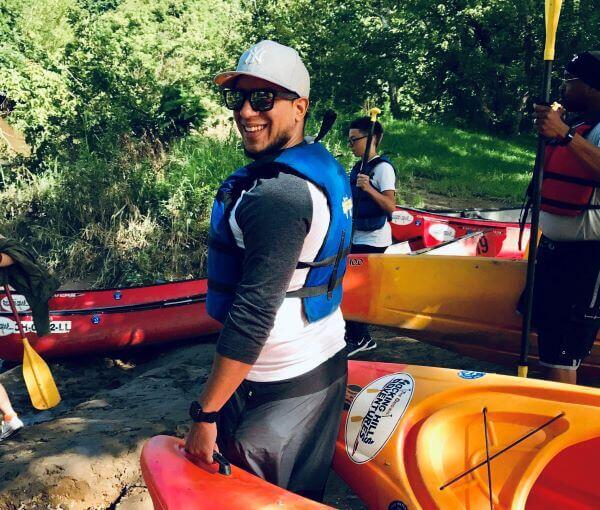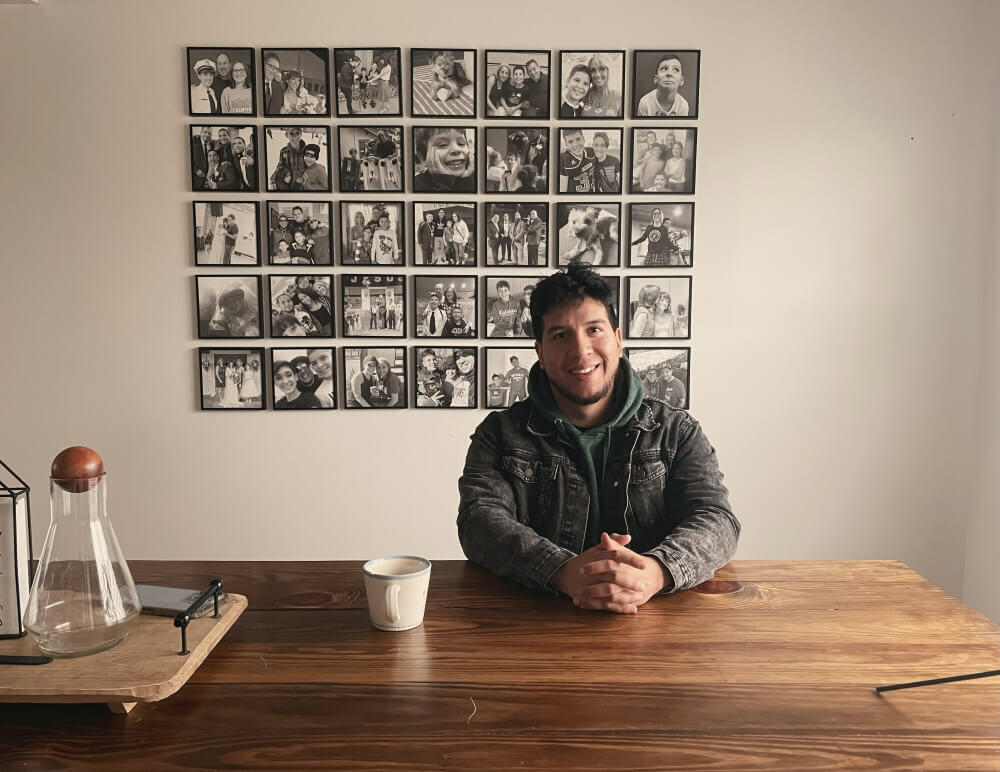
Eckhart Tolle famously quipped, “It is impossible for anyone to act beyond their current level of consciousness.” Like a clock wound to move in a certain direction, people tend to continue down the same path indefinitely, due to their upbringing, personality, and experiences. When that path is wise and wholesome, the process is known as a “virtuous cycle.” On the other hand, when that path is ill-advised or misguided, the process is known as a “vicious cycle.” People entrapped in vicious cycles exhibit no inkling or ability to change, barring some transformative life experience. Like Saul on the road to Damascus, they may reach a point where a compelling, grace-filled experience is the only thing that can alter their life for the better.
This week, I reached out to my friend and Campus Pastor at Garden City Church, Gabriel Rodriguez. Gabriel was born in Caracas, Venezuela, and moved to New Jersey at 9 years old, overstaying a tourist visa on a trip to visit his father. Gabriel’s childhood, ridden with trauma, fear, and bad influences, led him down a delinquent path of drugs, crime, and violence. However, one day, while in a Central Ohio jail, just moments away from being deported and separated from his son, Gabriel said a prayer that would change the course of his life.
The following is the account of a live 3-hour interview conducted in person. I hope you find Gabriel’s story as raw, fascinating, and inspirational as I did. You can find him on Instagram @GabrielN_Rodriguez
[For more, see the complete archive of interviews.]
Tell the people about yourself.
My name is Gabriel Rodriguez. I’m 32 years old. I’m originally from Caracas, Venezuela. Both of my parents are Venezuelan. I came to the US in December of 1999. I have three kids. My oldest, Gabriel Romeo, is 15 years old. My second oldest, David Miguel, is 13 years old. And my youngest, Grace Valerie Joy, is 8 months.
I currently work for CoverMyMeds as an Account Coordinator. There is a process called prior authorization for people trying to get their medication covered by insurance. We are basically the middlemen who make sure the pharmacy, the doctor, and the insurance company are handling their side of the paperwork. I volunteer as the Campus Pastor for my church, Garden City Church. One of my main roles it to offer pastoral support to the youth, young adults, family ministry, and Sunday volunteers.
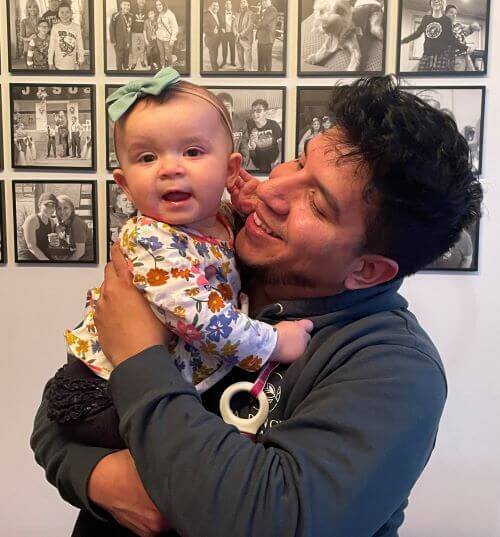
What was Venezuela like growing up?
The first thing that comes to mind is the weather. We didn’t get snow in Venezuela where I lived. You would never really see people wearing jackets. I remember my mom and dad had a good-sized apartment with four bedrooms, a kitchen, and two restrooms. I believe we lived on the 19th floor. I remember there was a lot of traffic. I remember traveling in the city to my grandparents’ house, mostly by train. We would also sometimes take the bus.
There was this big plaza in the city. People would just go and sit and there were stores around—people selling churros and ice cream cones. It was a pretty city. Just thinking about the people and the community brings me joy.
How was your family dynamic?
I have very few memories of us all—me, my two brothers, mom, and dad—in the same house or in the same room doing the same activity. During those years, it was normal for my dad to be gone on business trips to the US, Brazil, or other parts of Venezuela. My parents’ relationship was shaky at times. I remember times where they would argue. I think the main reason was money-related. I remember my mom would go out partying or hanging out with friends, and she would leave me at the house by myself and leave my brother at my grandparents’. Eventually, my mom started dating somebody else, and my dad got word of it in the US. At that point, the separation happened, and I believe that’s when my dad decided to stay in New Jersey.
I dealt with a lot of fear when I was little—fear of the dark, fear of being alone, fear of ghosts. My house would get pretty dark and I would not leave my room because I was afraid. I remember being home for hours and hours by myself. We had a chair in the apartment right next to the door. When you got out of the apartment, there was a big hallway with doors to other apartments on the same floor. And I would just in that chair with the door open, crying and looking at the elevator, hoping that my mom would come home. I don’t know if I thought that crying would make her come back sooner, but I just remember this fear of being by myself.
There were times my mom would drop me off at my grandma’s house, which was her mom’s house. We had like five aunts that lived there—all my mom’s sisters—along with their kids. My brother Israel, who was a year and a half older than me, lived there for a large part of his childhood and basically grew up there. In fact, all of my three brothers grew up at different grandparents’ houses. I was the only one who grew up with my parents. And so I always felt like the outsider when I went to visit my grandma’s house.
I don’t know if they were necessarily treating me like an outsider. Maybe it had to do with how I was acting. I would cry for my mom. I used to pee the bed. So I don’t know if it was what I did that upset them and made me feel like I was rejected. Or if I was rejected from the outset and that made me act the way I did. One good thing I can say about being at my grandma’s house is that I wasn’t alone.
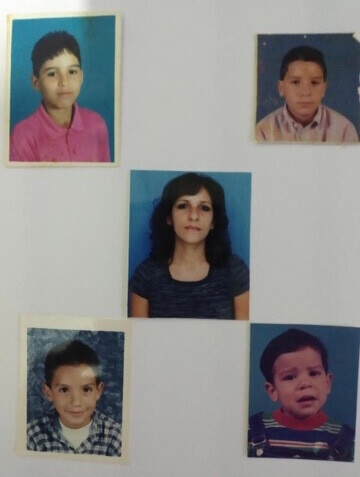
It sounds like you had a really tough childhood.
When you say that, I think of people who had a really tough childhood and mine doesn’t sound so bad. But then I can compare myself to other people who had very good ones, and I think mine wasn’t so great. So I think I’m somewhere in the middle in the sense that it wasn’t a normal childhood, but it also wasn’t the worst childhood either.
Your dad settled in New Jersey, and you eventually went to live with him. How did that happen?
When me and my brother came to the US, it was for vacation. It was like a Christmas gift. We came on December 25, 1999. The plan was to only be here for a month. We were going to spend a week or two in New Jersey, four days in San Francisco, then spend the rest of the time in New Jersey. It was an exciting time. Before the trip, I remember me and Israel sitting on the balcony where my grandma used to live watching airplanes and dreaming about what it would be like in the US. We didn’t have a picture of America like I feel other nationalities have. I think we just thought about snow. As kids, we were excited to travel in an airplane and see the snow.
Nobody knew this, but in the back of my mind, I was excited to go to the US because I knew I wasn’t going to be alone the whole time. I knew I wouldn’t be left at my house by myself. I knew I wouldn’t be crying for my mom or dad to come. I knew my brother was always going to be there with me. My brother was the guy, if I ever needed anything. There was a release of peace and joy that I didn’t have to be afraid anymore.
We flew by ourselves. I think I was nine and my brother was ten. During the flight, the flight attendants came to us and asked us if we wanted to fly the plane. They brought us into the cabin where the pilots were and they let us sit on the seats next to the pilot. They basically just said, “Don’t touch anything.” It was a really cool experience. The airplane landed in New York but we were staying in New Jersey.
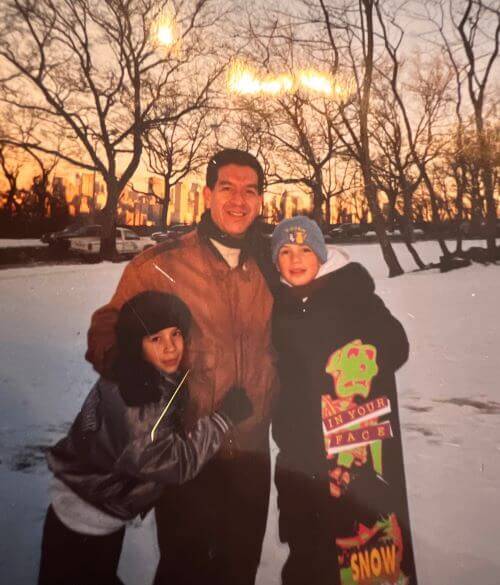
What was it like when you got there?
My dad was renting a room in a house. The houses in New Jersey were like three floors, and each floor was like a whole ‘nother apartment. There was one queen bed and two twin mattresses on the floor. Sometimes we would hang out in the room or go to the backyard. But usually we went with my dad to the office where he was working. We did touristy stuff. We visited Manhattan. We got on ferries. We made friends. It was a good time. In San Francisco, the streets were like mountains – high and deep and all of that. I remember seeing transgender people for the first time. And then there’s this soup in San Francisco where the bowl is made of bread.
It was time to go back, and in that whole month we never saw snow. Literally, tomorrow we’re going back. And on the forecast, it said it was going to snow on the day that we’re leaving. We came to America to see snow. We’re like “We’re so close. We have to stay tomorrow to see the snow.” So basically we just begged my dad to stay so we can see the snow. The idea was “Okay, you guys can stay. I’ll pay for the fee for missing the flight. And then you guys can go back.”
We saw snow. We liked it. We played with it. I think we went sledding. And we just decided that we liked it in the US and wanted to stay. At this time, my parents were going through a divorce. In the back of my mind—and I didn’t tell my brother this—but the thought in the back of my mind was, “I don’t want to go back to Venezuela and be alone.” So my dad said, “Call your mom. And if she’s okay with it, you can stay.” We called our mom and told her “We want to stay here.” My mom was a teacher. She appreciated education. One of the things we told my mom was that the schools were great. I remember telling her that the books and education were free. And my mom was okay with it.
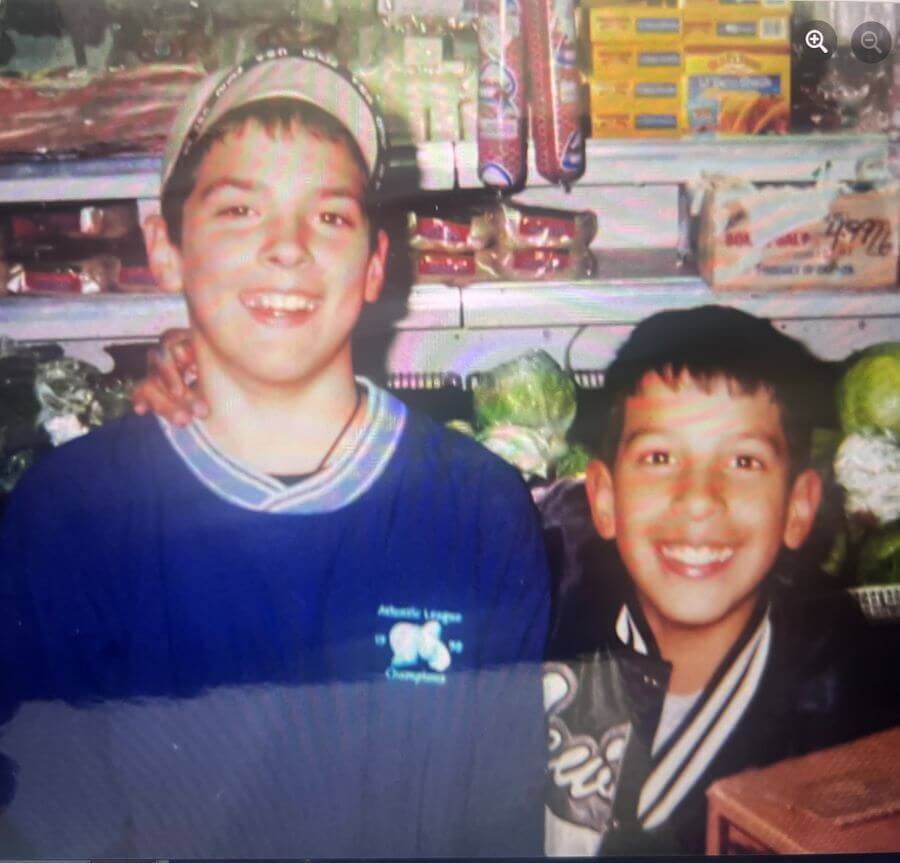
So you guys overstayed your visa.
Yes—we were only supposed to be here for thirty days. But it was probably God’s grace, to be honest. Eventually, my mom came back to the Lord and got serious with God. I didn’t tell you this, but my dad was a pastor in Venezuela before moving to the US. I grew up as a Christian. My mom and dad were Christian. Who knows if us being there would have made it harder for her to come back to the Lord. The pressure of having two kids. The shame, the disappointment, having to hide, having to deal with an emotional child who is now seeing his mom in a new relationship.
Looking back, everything that happened was very unreasonable. For my brother to want to stay in the US to live in one small room when he had a good life back in Venezuela. He loved his family back home. That wasn’t my case. I didn’t have a family back home that I loved. All I had were my brothers and parents, who I never saw. And for my mom to have been able to say, “Yes.” The reason I think it had to be God is because her ending was better. If her ending was worse, then I couldn’t go back and look at all these little things that happened and say, “That was God,” because her ending was worse. But the fact that her ending was better has to make me think that there was a purpose for all these areas that had a question mark, with the question, “Why did this unreasonable thing happen?”
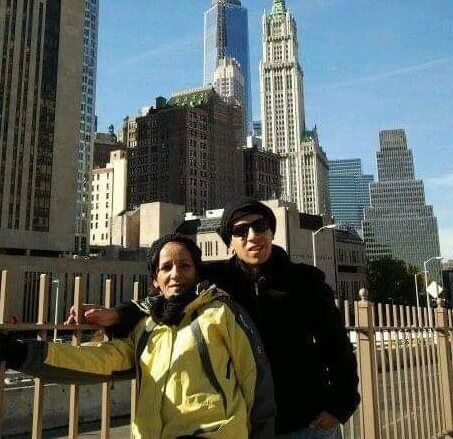
What was your experience like in school?
In New Jerseys the schools are by numbers. They have names, but they also have numbers. So school number three, school number six, etc. I think we went to school three or four our first year. The cool part about New Jersey is that there are so many Spanish people that every single grade is divided into “bilinguals” and “regulars.” The bilingual class is the class they would speak both English and Spanish, but mostly Spanish. So it was mostly for kids who didn’t know English and needed help with that transition. Many of our books were in Spanish, and some were in English. In the regular class, they just spoke English.
There was always bullying from the regular students to the bilingual students. They always felt better than us. So I experienced a good amount of bullying. They got it back from me eventually, but it affected me for sure. You feel the rejection. You feel less than. You feel like you didn’t receive the same treatment as everybody else. And you eventually start looking down on yourself.
I moved to Ohio when I was 15. During my 6 years in New Jersey, I didn’t learn any English. None. Zero. I don’t know how I ever passed the part in English—they probably just didn’t want to fail me, but there was enough in Spanish that I could get by. I had no structure of studying or doing homework. I think I remember studying one time my entire childhood. I remember failing spelling test after spelling test after spelling test, but they still passed me. And then I failed 6th grade. After I failed 6th grade, I was hurt that my friends moved on and I got left behind, but I had no distractions. I was so motivated I made the honor roll. It was never that I wasn’t smart, but I didn’t have any focus or structure.
What prompted you to learn English in Ohio?
No one spoke Spanish in Ohio. In New Jersey, everyone spoke Spanish. The stores, the buses, the teachers, the police, the firefighters, little league baseball, soccer— all the kids and all the parents in my world spoke Spanish. So I had to learn English to survive. I would be in the classroom lost, not knowing what they were saying. During the first year, I started dating a girl, and I think it really helped me get more comfortable speaking the language. By my second year in Ohio, people were telling me my English was getting better and I was losing my accent.
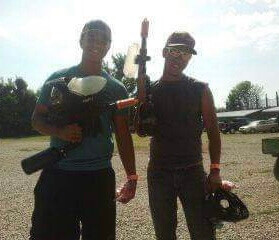
Back to New Jersey. I know you started getting into trouble from a young age.
I was probably 12 or 13 in New Jersey. Like I said, between bilingual and regulars, there was always that bullying, that tension. Here and there, there would be fights between these two groups. Even if they weren’t part of an organized group, you would know it was a bilingual fighting somebody from a regular class.
Eventually, we got this guy who was new at the school. His name was Frank. He was short and stocky. On the first day of school, he came wearing a yellow shit, and on top of it was a green shirt, with a bandana. He was a bilingual, so he was a part of our group. He heard that someone from the regular class was making fun of his clothing. Frank said, “Okay, we’re going to fight after school.” We had never seen this. It was just so unusual for us. We were like, “This dude is crazy.”
And so we all meet up after school, and they got into a fight and Frank beat him up. That was cool, because it was like a good record for the bilingual class. And Frank was loyal. Frank was going to stick with his people that he started with. So after a while, he started becoming very popular because he would fight anybody, and he was a good fighter. So he started gaining respect, and people wanted to be a part of his group. So basically from the first day of Frank’s class, he taught us that you need to gain people’s respect by fighting.
And from that day on, that was everybody’s response to everything. Our group response was, “You look at me the wrong way, you say the wrong thing, and we’re just going to fight.” And so I learned that respect was based on fear. And so it wasn’t too long after that, we had a small group of people, just a handful of us—my brother, a guy that we call our cousin, Frank, and Frank’s older brother. We would just sit outside my friend’s house by the stairs and hang out every day. And one day, we just decided we should make a gang. We were going to put a name on it and be an organized gang. Everybody else was going to know that this was our gang.
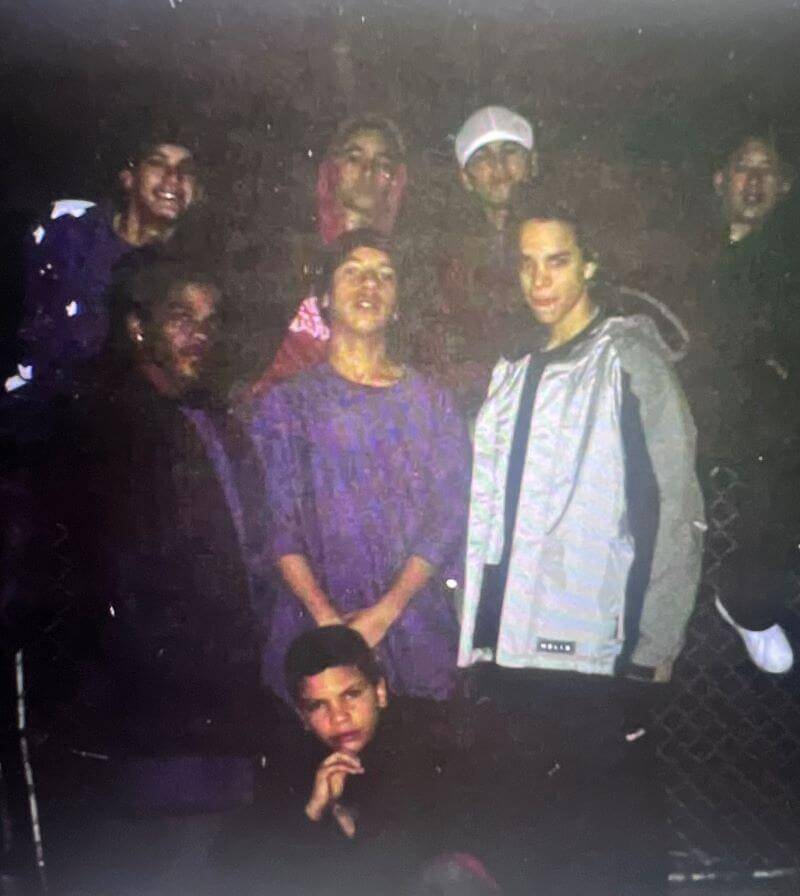
Were there specific gang activities you participated in?
We didn’t do a whole lot, but we went to parties together. We all wore black at times and took pictures. At one point, we started doing graffiti. There was a big gang in West New York. And that big gang was on Street 60. And so the name of the gang was 60th. Probably everybody in that gang was a regular. But one day we thought, “We’re in a gang. We need to make ourselves noticeable to people.” So me and another friend rode our bikes to the high school. There was like a bridge in the high school from one building to another, and under the bridge everybody hanged out there for lunch. And so me and my boy drove our bicycles over to that bridge, and on that wall where everybody hanged out we wrote Eff 60th, but like the full word F. And we put the name of our gang on the bottom of that.
By the next day everybody knew there was another gang out there that is dissing this big gang. And that just started fights. Eventually, stuff got crazy, but at the beginning—we were young—it was just fistfights. This was all in New Jersey. And we were anywhere from 13 to 15. Right after we moved to Ohio, literally a couple months later, we started hearing stories about people getting stabbed. Big fights with baseball bats. Guns. Machetes. Crazy stuff started to happen. Drug dealing.
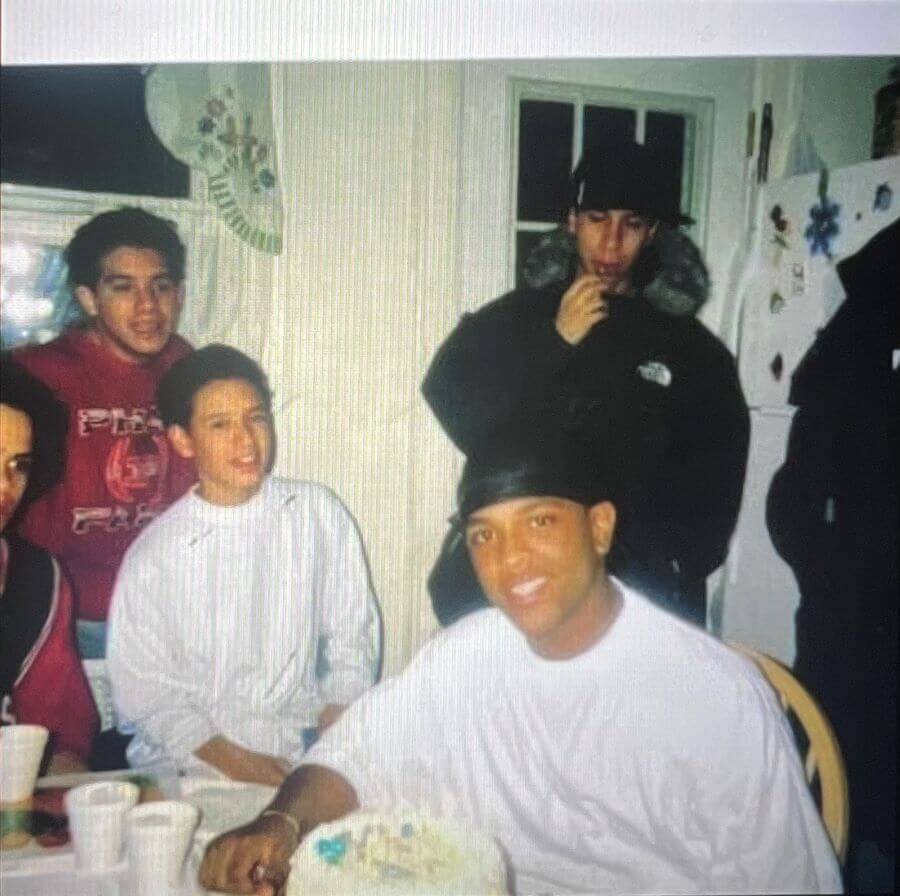
It sounds like you got out just in the nick of time. What informed the decision to move?
My dad moved us to Ohio because he knew me and my brother were getting into a lot of trouble. Eventually, we started drinking, getting into more fights, etc. The Ohio option came because my brother used to go visit there. He fell in love with some girl, and he told my dad that Ohio was great. Based on all the trouble we were getting into in New Jersey, my dad said, “We should probably move to Ohio, and take these kids out of this crazy place, because they’re either going to go to jail or end up dead.”
He was right. We probably would have been dead or in jail. I think I eventually would have killed someone or they would have killed me. Not because I was a big dawg, but just because of that environment and the pressure of just being there.
Did things get better in Ohio?
No, they didn’t. A lot of my main crew, like Frank, came to move with me. Frank’s dad lived in Ohio. When my people found out we were moving, they decided to move, too. And other friends from New Jersey would visit. In New Jersey, I would walk six blocks down to my friend’s house and party every weekend. When we moved to Ohio and Ohio doesn’t have freaking sidewalks, it was like, “Man, this place is crazy!” I automatically thought, “If I’m going to have any fun in Ohio, I need to have a fake ID.” Because, to my understanding, the only fun thing to do was go to clubs. I didn’t know enough people to go to parties or anything like that. So I got a fake ID, and I started hanging out with an older crew.
Car racing was our big thing. And eventually we got into car theft, like taking the whole vehicle. We all owned Hondas or Acuras. I got my first car at 16. We would go steal other Hondas or Acuras to take the parts of the car—rims, seats, engines, transmissions, bumpers. Anything we felt like we wanted to take for our cars. One time I stole an Acura that had leather seats, and I took the leathers seats and put them on my Honda. Another time, I saw a Honda with rims that I liked, so I stole the car and took the rims. We would drive the stolen car to an apartment complex, find an empty garage space, take the rims off, and leave the car. Eventually, they would find the car without the rims.
I would break into cars every week. Steal the radios. Steal the speakers. I was still 16 at the time. I would have a new radio for my car weekly or biweekly. I would change it because I got bored of it or I found a cooler one. I would have 5, 10, 15 radios in my trunk at a time. Everything I didn’t use I would sell—speakers, radios, rims, etc.
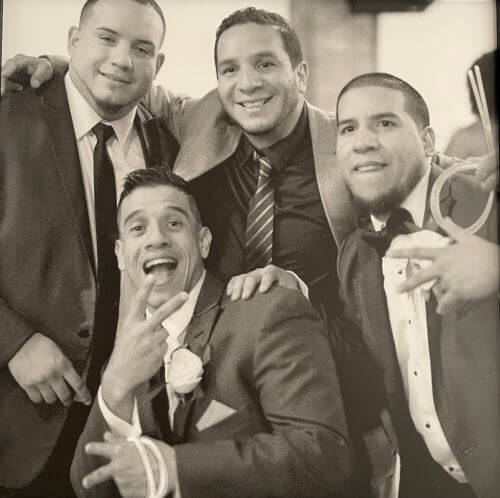
What about school? It doesn’t sound like you were an A student.
In high school, I would skip school all the time. Since my dad didn’t know English, I would be the one that had to fill out all the paperwork for the school, and I would put my email and phone number. And so any time the school wanted to contact my dad, they would actually be contacting me. I remember there was a month I literally went to school for two days. So what I did not to fail was fake doctor notes. And I would just make up all the work on my own time.
Somehow, I found a way to pass, but I eventually dropped out. I was 17 or 18. And I continued to live that lifestyle. Partying, drinking, drugs—mostly just weed. I eventually came to realize that the group we were hanging out with in Ohio was big into drugs. By the grace of God, I never got too fully into it even though we had the resources. But my brother did. I’m talking about blocks of cocaine. I remember seeing big blocks of cocaine.
I remember one time we opened a block of cocaine that was branded by the cartel. And the brand that this block of cocaine had was the sign of a lady’s restroom. I remember looking at it and thinking, “Man, I didn’t know that the cartels brand their blocks of cocaine.” I remember looking at big bags of Crystal Meth and me not knowing what they were. They said, “Don’t touch it with your bare hands because it can get you so high it’ll kill you.” And there were these big black bags with pounds and pounds of weed.
Where was your dad during all of this?
I was living with my dad, so I didn’t have to pay rent. My dad was a cool dad, but there was no life structure. There was nobody sitting down with me giving me any life advice about careers, the future, wise decisions. My dad was busy with his own life. He was a salesman. That’s not an easy job. He had his own struggles trying to provide for us. I think he felt bad that we didn’t have a mother who was there to raise us because he mentioned it a few times.
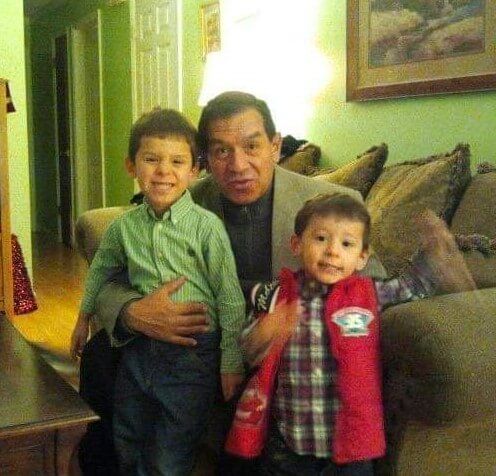
I met you 13 years ago at a church. You were 18 or 19 at the time. How did you end up at a church of all places?
I hit bottom when my dad had a stroke in 2008. For me, my dad was basically my world. I loved my dad. That’s basically when I became homeless. That’s when I got hooked on weed. Not like an addiction, but just an escape. I started smoking weed every day, literally all day long. We would go to bed high and my friend would literally wake me up with a blunt in his hand. I’m not going to lie, it was amazing. I remember thinking back on that time, “Wow, that was amazing.” He would already smoke half of it and was like, “Here’s your half.”
My dad had to spend many weeks in the hospital and learn how to walk again, talk again, and just do life. I don’t remember if we got kicked out of my dad’s apartment or I thought, “I can’t stay there by myself.” I was still afraid of darkness, afraid of being alone, from my childhood. So I would just crash at people’s houses. At one point, I was living in an attic on Sullivant on the West Side. One weekend, I threw a party at that house, and some money got stolen from the owner of the house, and then I got kicked out. I slept in my car a few times and just crashed at friends’ houses. And then I lost the car, too, because I wasted the money my dad and I had saved up and couldn’t make the payments.
For a time, the mother of my boys let me stay at their place. I don’t remember how long I lived there. I walked everywhere. I didn’t really have a consistent base of food. I was still getting high. I actually got enrolled back in high school. And I started going back to school, but it just wasn’t the same—who I used to be in high school before and who I was now. And so I dropped out again. I dropped out of high school two times. But the second time, I think not having a car was also a factor. I had to walk two miles there and two miles back. And being an illegal immigrant, I realized that it didn’t matter if I finished high school.
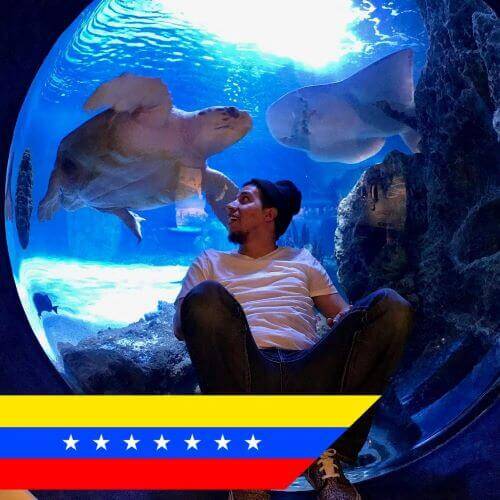
You felt that there would be no opportunity, and it didn’t matter whether you made wise decisions or not.
That’s why I was so happy when President Obama came out with the DREAM Act, because I remember I couldn’t even dream. I remember writing a letter to immigration that my lawyer asked me to write when I was applying. I remember telling them that most people dream about taking a vacation once a year. And they will plan it and think about what they want to do. And I was thinking, “I can never dream of taking a vacation, because I can’t even pick the job I want.” As an illegal immigrant, you don’t plan your life. You take what is given to you. So if $15 an hour is all that is given to you, then that’s all you have.
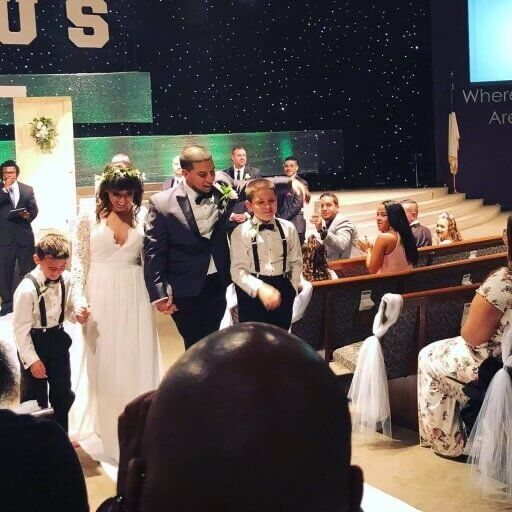
Being undocumented for so long and with the crimes you were involved in, did you ever get in trouble with the law?
With my dad having a stroke, me being homeless and being on drugs every day, I eventually got caught by the police with three warrants. I was in a stolen vehicle with a minor. We were both drunk and high at the time. I was already 18. I think I had weed on us. And I gave the cop a fake name, because I knew I had three warrants. But they found out that I had given them a fake name, which was a whole ‘nother charge.
And so now I’m on my way to jail as an adult. And the first thing I do when I get there is pray. Like I said, my dad was a pastor and I grew up as a Christian. I didn’t have the connection that God and Jesus were the same. Or that Jesus was the Son of God, or anything like that. But I had some understanding that there was a God. One thing about jail is you automatically go into this stage of hopelessness. You’re in the cop car looking out the window, thinking, “Man, I just messed up. I don’t know when I’m going to see the outside world again.” You’re basically at the mercy of the law. You don’t know if your family knows that you’re there and if you’re ever going to be able to contact them. And time goes by very slow in jail.
So I’m in jail and I didn’t know when I was going to get out. On day four, I’m just sitting there and they call my name. Totally unexpected. I don’t know what’s happening with my case. I don’t know when I’m going to court. They call my name and hand me the clothes I had on the day I got arrested. They put me in this other room where people started getting released, and started getting back the possessions they had on them on the day they got arrested.
In the other room, everybody who was American was let out of the room. And they left all the Spanish people in the room. And so we immediately knew. They left all the Spanish people in the room because they were about to deport us. I remember everybody was just laughing, “They’re going to deport us. No big deal. I’ll jump the border as soon as they drop me off.” This whole time I’m thinking, “I came in an airplane. I did not jump a fence. I did not cross the desert. I’m from Venezuela. Mexico is far from Venezuela. And I’m too much of a coward to go through a desert. I’m never going to come back. If I get deported, I’m never going to come back.”
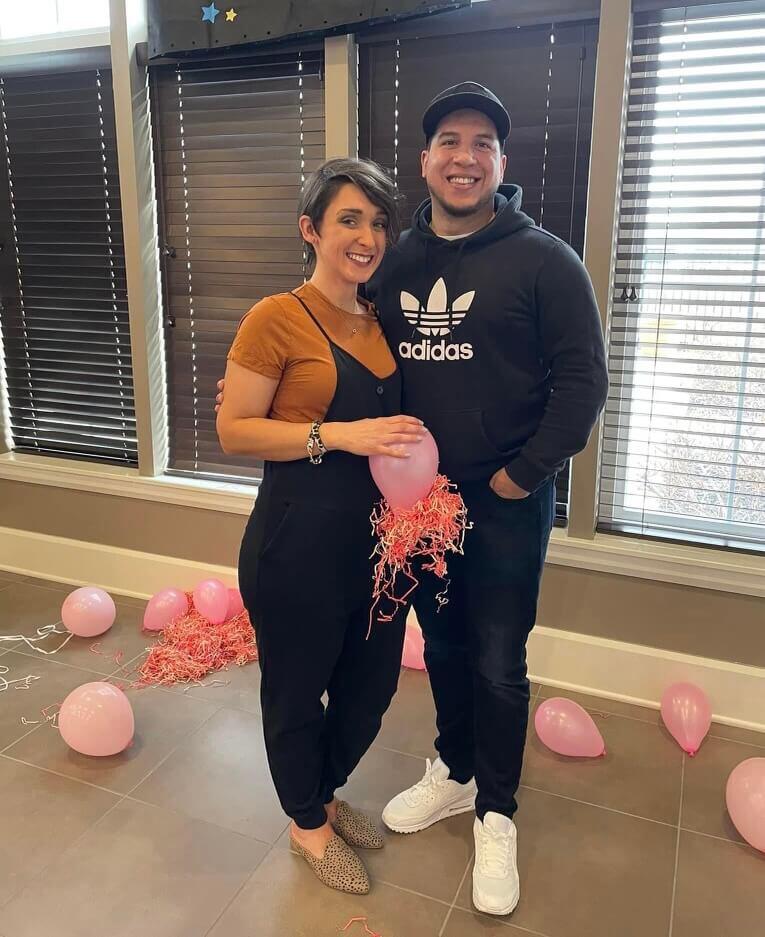
You hadn’t been to Venezuela in ten years, and here you are thinking you’re about to get deported.
I had one son. He was a year old. And I thought to myself, “I’m never going to see my son again.” And in that moment, I decided to pray. And with the weight of repentance, I did this next action. I had a hoodie with a big skeleton and a hat that I had stolen from a car. As a way of me saying, “I’m done with this lifestyle,” I took the hat off and I took the hoodie off, and I threw them on the floor. And I did all of this before praying. I didn’t know the Bible said anything about repenting. This was just an action that came naturally, “I’m done with this lifestyle.”
And I closed my eyes and I prayed. And my prayer was, “God, if you take me out of this place, I will stop trying to sell drugs. And I will be the father you want me to be.” As I was praying, as soon as I opened my eyes, I realized I spoke with someone. This never happened to me in my life. I told you I prayed immediately when I got to jail, but that was the first time that I prayed and I knew that I was talking to God. Like he heard me. Like me talking to you right now—I know you’re hearing me. It was even more real than talking to you. It couldn’t have been more than three minutes, bro. After that prayer, they opened the door, and they called my name: Gabriel Rodriguez!
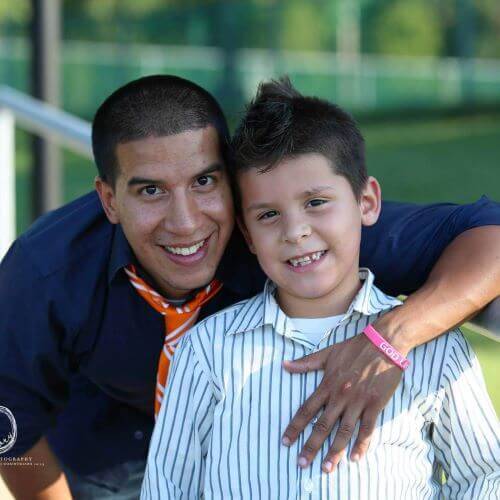
What was going through your mind in that moment?
Based on the situation, based on the setting, my response should have been fear. I’m the first one to go out with immigration. But instead I just had peace. The officer took me out of the room. And as they’re handing me the belongings and the things I had in my pocket that day, the Sheriff says, “You’re a lucky guy.” I said, “Thank you, sir.” He said, “There’s a Hilliard police officer here to pick you up because you have court.” And so I realized there was a police officer right behind me who was from Hilliard. He wasn’t a Sheriff—he had a blue uniform on.
And the Sheriff asked the Hilliard cop, “Can you wait five more minutes? Immigration is running late.” The Hilliard cop tells the Sheriff, “No, the judge is waiting for him, and I need to take him.” So the cop takes me to Hilliard. I get to Hilliard. My brother and my dad are there. I call my attorney. I’m like, “I got court in Hilliard.” He said, “Tell the judge that you want your case transferred to Columbus. Once your case gets to Columbus, I’ll make sure it gets to a judge-friend of mine, and we’ll take care of it.”
I remember being scared because this dude doesn’t know that I almost got deported. I didn’t know what the judge was going to say. I let the court know I want my case transferred to Columbus, but I still had to appear. The judge asked me two questions: Do you go to school? And Do you work? I said “Yes” to both of them, and they were both a lie. I just dropped out of school a couple months before that and I just lost my job at Donatos because I was in jail for four days. So the judge looks at me after those answers, “What are you doing in my court? Get out of here.”
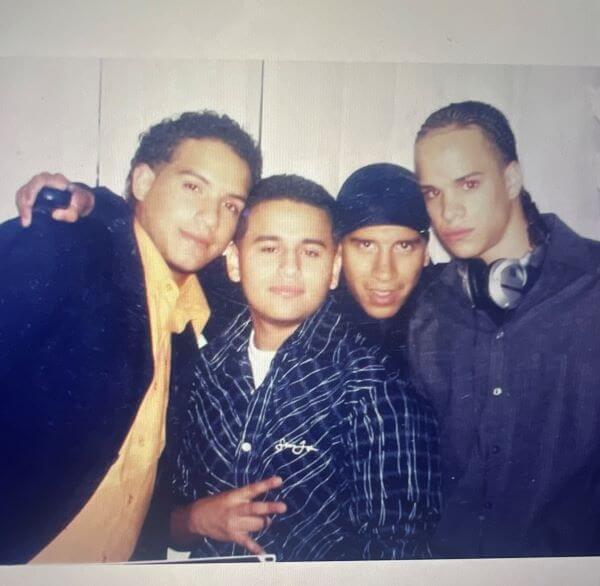
So hitting rock bottom and having that divine encounter in jail motivated you to make the change. Did your transformation take place instantly or was it a process?
As soon as I got out, I was still homeless. I lost my job. I had no money. I was the only one paying for the apartment where me and my dad were staying. I ended up moving in with my friend, who was a big drug dealer. That’s when I realized just how much drugs we had. Many times I was in rooms where we were counting thousands of dollars. The most I saw at once was $150,000. I was still using drugs, smoking weed, and drinking.
One night I used acid for the first time. During my trip, I found myself in a closet with all the lights off crying. I remember calling my brother telling him how I was feeling. After that trip and all of that, I’m like, “Okay, I need to get back to God.” I started becoming a better dad. My deal with God was “If you take me out of this place, I’ll become a better dad.”
So now I’m praying and asking for help, trying to figure out how to get my life together. I need a job. I need a car. I need to get out of this house because it’s full of drugs. Eventually, God provides a car. There was this guy who owed my dad like $300. He didn’t have the money to pay my dad, but he had a ’92 Ford. My dad was like, “Hey. I got a car. Do you want it?” I’m like “Absolutely! That’s an answered prayer.”
I had a friend who worked at CiCi’s pizza. I called her and she gave me a job. For the house, there was this apartment complex that was getting renewed because it was in a bad area. It had a bad rep to it. And it was giving this special where you get three months of rent for free with $100 deposit. That’s a deal. So we’re like “Okay.” So we thought, “By the fourth month by the time I have to pay rent, I’ll have enough money saved up to pay rent.” But I was working part-time at CiCi’s making $250 a week. It wasn’t enough for rent, just to keep the bills paid.
What happened after the 3-month promotion elapsed?
Things were tight, and so I still tried to hustle some illegal stuff. Illegal stuff never worked for me. One day, I come home from work, and my dad tells me, “Hey, the people from the apartment complex came and said that we owe $1500 worth of rent. They say if we don’t have it by tomorrow, we have three days to move out.”
As I’m getting ready to shower, I prayed, “God, if you take me out of this one, I will…” And I stop. I thought to myself, “God ain’t stupid. That’s the thing you said in jail. God did his part to get you out of jail, but you didn’t do your part. You tried to go back and hustle.”
I showered normally. There wasn’t anything magical about the moment. It wasn’t like jail where I felt like someone heard me. This time, I thought “Whether you take me out of this one or not, I’m going to try you fully.” In my mind, I had tried everything and nothing worked. And if God was not real and this didn’t work, then I’m still going to deal with the consequences of being kicked out. But if God is real and he answers my prayer, then he’s going to take me out of this one.
And so the next day came, and the guy from the apartment complex didn’t come to pick up the money. Three days later, and the guy hasn’t come to pick up the money. A week later, still no guy. A month passed, three months, six months, 12 months—we stayed in that apartment complex for 19 months for free! There weren’t people to do maintenance in the apartment – check the basement, check the air conditioning, stuff like that. But they never sent anyone to pick up the money. By week one after that prayer, I was like, “Okay God, I know you’re real, because this guy never came.”
So after the first week, I was already deciding what it was going to look like to try God fully. And that was, “Stop doing what is bad. Read your Bible. And go to church.” I remember calling my mom and saying, “Mom, I’m making this decision. I’m going to start reading the Bible, but I don’t understand it.” She said, “Don’t worry, I’m going to send you this Bible you can understand.” And then sent me a Spanish Bible with a simple translation. Kind of like the NIV. That was the beginning of me giving my life to God. I remember just praying in my room, telling him, “I’m going to stop drinking. I’m going to stop smoking. I’m going to stop partying and stealing.”
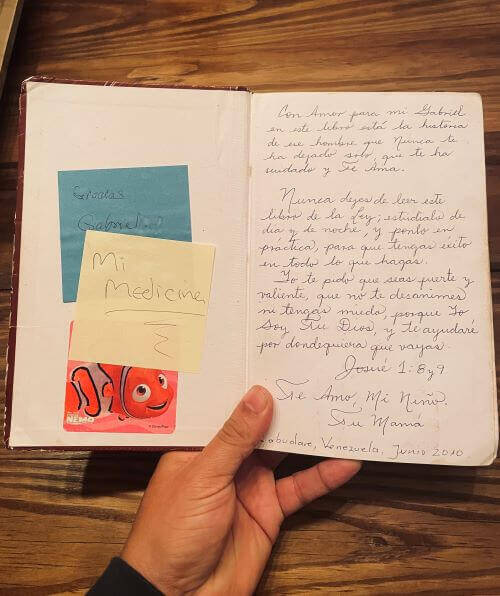
The hardest area for me was sexual. But I remember saying, “If you help me, I’ll do it.” Now I’m thinking, “I’m going to go to church. I’m going to try it fully. I’m going to stop doing all this stupid stuff.” A year or two ago, I had visited Potter’s House with the mother of my kids because my aunt went there. When I went back again, it was the first time where I’ve ever been in a church and felt, “This is home. This is where I need to be.”
How did your relationship with God grow?
I got more involved in church and started experiencing God for myself. There was this hunger in me to show people that God was real, and it came from reading the Bible. It came from reading the Old Testament. I didn’t start in the New Testament. I started with Abraham, Isaac, Jacob, Moses, Samuel, Joseph, Ruth, Samson—those stories from the Old Testament that will increase your faith. There was something in me that just believed God for supernatural stuff. And there was something in me that wanted to show people that God was real.
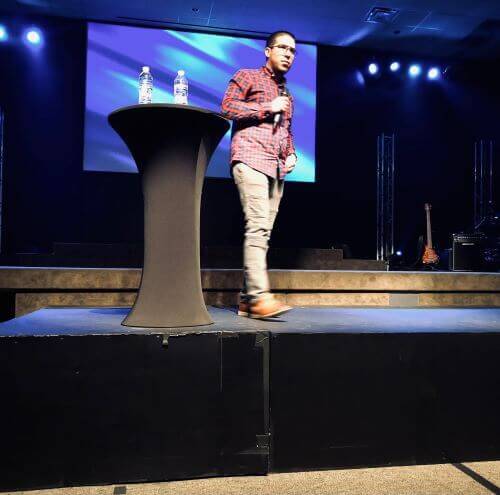
You are a pastor at Garden City Church on the West Side of Columbus. How did you come into that role?
One of the first things I started doing was homeless ministry. I got involved with the Young Adult Ministry at Potter’s House. Then I got involved with the Youth Ministry. Eventually, I became an elder at Potter’s House. I must have been 29 or 30 years old. Then we started a Healing and Deliverance Ministry at Potter’s House, which is insane, because that wasn’t something Potter’s House really leaned into in the past. And we would have people come every Sunday to get demons cast out and prayer for healing. So we did that for about 6-9 months before Covid hit.
By that time, I’m married to my wife Kelcie. During Covid, we felt in our hearts that our friend, Pastor Gerald, needed to start a church. And we basically just told him, “If you ever start a church, we’ll move with you. We’ll go to your church.” In the summer of 2020, Pastor Gerald started Garden City Church. And I preached every Sunday during the first three months.
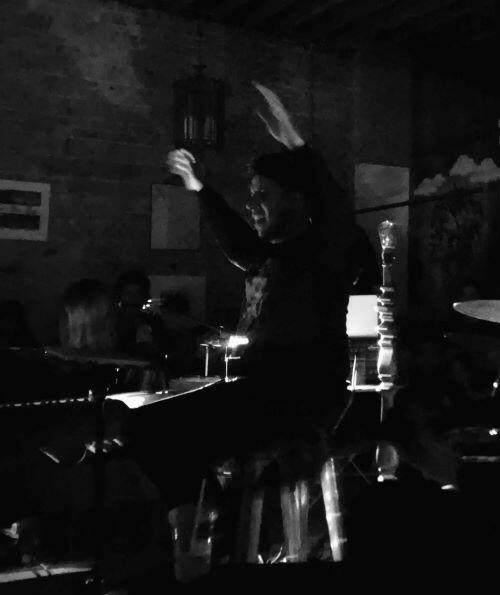
Can you talk about your experience at the Dream Center?
In 2021, I started working for the Columbus Dream Center. The mission of the Family Ministry was to provide a space for kids to have lunch, do homework, get tutoring, and have Wi-Fi connection during Covid when the schools closed down. As Assistant Director of that division, part of my role was to provide spiritual insight to the leadership. And so I worked there for a year. And then I worked for Rock City Church for about 6 months with the prison ministry.
Finally, because of working for all these ministries—Potter’s House, Dream Center, Rock City Church—I didn’t have an official position at Garden City right away, because I didn’t know if I was going to stay. I had an offer to be the Young Adult Pastor at Potter’s House. Once I decided I’m going to stay at Garden City and I’m not going to work with these other churches, that’s when we started asking, “What role can Gabriel take at the church?” And that eventually led me to my current role as Campus Pastor, where I support the youth, young adults, family ministry, and church volunteers.
You have two teenage sons. Last year, you became a girl dad. How has being a father changed you?
I honestly think that my life calling is to be a father. I think that God called me to serve my kids. Being a father is great. If it changed me, it made me more mature. I think about my kids daily. I have a strong desire to help them in life, to succeed in life, to give them everything that wasn’t provided to me, both in knowledge, presence, and material stuff – probably in that order. And also to provide them spiritual insight that wasn’t provided to me. And so I have a strong desire for my kids to know God. I love my kids.
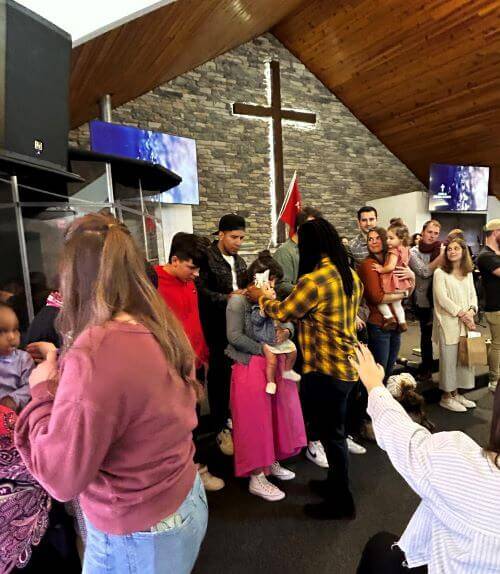
Do you plan to go back to Venezuela to visit?
I don’t know. My mom passed away in October of last year. And I feel like I don’t have anything to go back to Venezuela for. I do have this sense that God has some type of calling on my life to Venezuela, but I don’t know what that is yet.
This is the rapid-fire round. I’m going to ask you several questions in quick succession. You can limit your answers to no more than a few words or sentences.
Favorite hobby?
Video games.
Favorite city?
LA. Second to that, Chicago.
Favorite verse in the Bible?
Man, that changes. I’ll say the first one that my mom gave me. Joshua 1:8-9, which is “Keep this book of the law always on your lips. Meditate on it day and night, so that you may be careful to do everything in it. Then you will be prosperous and successful. Be strong and courageous. Do not be afraid or discouraged. For the Lord your God will be with you everywhere you go.”
Pet peeve?
Bad customer service and people with no common sense.
Hidden talent?
Sadly, I don’t know that I have one. I speak Spanish?
Ideal vacation?
Los Angeles. Two weeks in Los Angeles or three. At a nice house in front of the beach with my wife and kids. And if I can bring Samson [his Yorkie] that would be cool.
Thing you are most proud of?
Having my kids with me now and all of my accomplishments in life. I shouldn’t be where I’m at in my life.
First word that comes to mind when you see pineapple on a pizza?
Gross.
What would you say to a younger version of yourself?
Believe in Jesus. Give your life to him.
Where do you envision yourself in 5 years?
That is hard for me to answer. It’s hard for me to answer because I’m in a place where I want to do God’s will, and I don’t know what that is right now. I don’t know if that’s with Garden City or if that’s being a pastor somewhere else. I want to do ministry. I want to be able to preach the Word.
